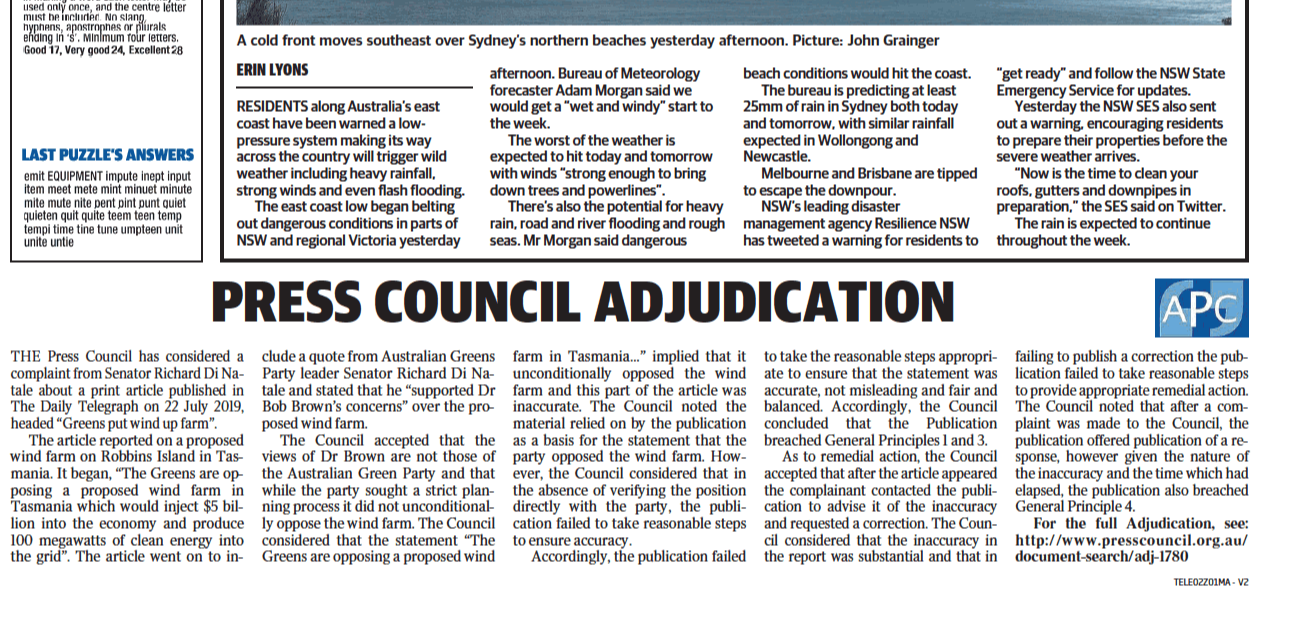Daily Telegraph article on wind farm breaches Press Council guidelines for accuracy
An article which appeared in The Daily Telegraph claiming the Australian Greens and Senator Richard Di Natale opposed a wind farm in Tasmania was inaccurate, the press watchdog has found.
Di Natale brought forward the complaint, claiming the article was inaccurate and misleading, and that the publication had failed to issue a correction when notified of the issues.
The article kicked off with: “The Greens are opposing a proposed wind farm in Tasmania which would inject $5 billion into the economy and produce 100 megawatts of clean energy into the grid.”



I wish the watchdog would take this line during elections. Would make for a much fairer fight. Lies everywhere in 2019 Fed Election media.